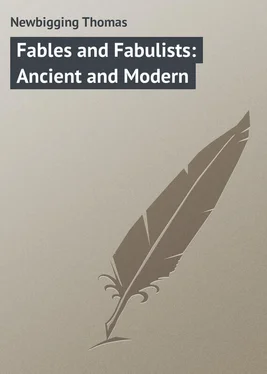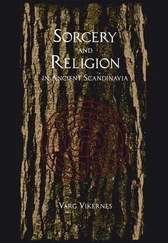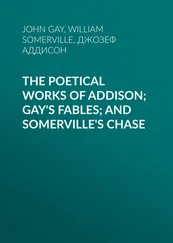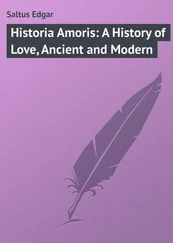Thomas Newbigging - Fables and Fabulists - Ancient and Modern
Здесь есть возможность читать онлайн «Thomas Newbigging - Fables and Fabulists - Ancient and Modern» — ознакомительный отрывок электронной книги совершенно бесплатно, а после прочтения отрывка купить полную версию. В некоторых случаях можно слушать аудио, скачать через торрент в формате fb2 и присутствует краткое содержание. Жанр: foreign_prose, на английском языке. Описание произведения, (предисловие) а так же отзывы посетителей доступны на портале библиотеки ЛибКат.
- Название:Fables and Fabulists: Ancient and Modern
- Автор:
- Жанр:
- Год:неизвестен
- ISBN:нет данных
- Рейтинг книги:5 / 5. Голосов: 1
-
Избранное:Добавить в избранное
- Отзывы:
-
Ваша оценка:
- 100
- 1
- 2
- 3
- 4
- 5
Fables and Fabulists: Ancient and Modern: краткое содержание, описание и аннотация
Предлагаем к чтению аннотацию, описание, краткое содержание или предисловие (зависит от того, что написал сам автор книги «Fables and Fabulists: Ancient and Modern»). Если вы не нашли необходимую информацию о книге — напишите в комментариях, мы постараемся отыскать её.
Fables and Fabulists: Ancient and Modern — читать онлайн ознакомительный отрывок
Ниже представлен текст книги, разбитый по страницам. Система сохранения места последней прочитанной страницы, позволяет с удобством читать онлайн бесплатно книгу «Fables and Fabulists: Ancient and Modern», без необходимости каждый раз заново искать на чём Вы остановились. Поставьте закладку, и сможете в любой момент перейти на страницу, на которой закончили чтение.
Интервал:
Закладка:
Montaigne remarks that 'most of the fables of Æsop have diverse senses and meanings, of which the mythologists chose some one that quadrates well to the fable; but for the most part 'tis but the first face that presents itself and is superficial only; there yet remain others more vivid, essential and profound into which they have not been able to penetrate.' 12 12 Essay: 'Of Books.'
If this be so, it is an argument against the common practice of limiting their significance to the one moral that is often given as an appendage to the fable. It is worthy of note that Æsop did not supply, either orally or in writing, the separate moral to any of his fables. They were left to speak for themselves and produce their unaided effect. The moral or application appended to or introducing a fable (for both practices are followed), is an innovation, as appears from what has already been advanced, probably intended to make clear what was obscure in the apologue.
The true moral is contained in the fable itself. The application may, and often does, vary with the idiosyncrasies of the commentator. Besides the moral and application there is in some collections of fables what is designated 'The Remark,' and 'The Reflection,' in which the commentator tries, as it were, to drive home the application of the story with an additional blow. Our own experience as a youth was that all these appendages to the fable were invariably skipped.
From all which it would appear that the moral and the so-called application of a fable are not one and the same thing. In point of fact, the latter may and does vary according to the peculiar views of the commentator. An exemplification of this may be found in the applications of Sir Roger L'Estrange and Dr. Samuel Croxall, the latter taking it upon him to stigmatize in strong language the twist which he asserted the former gave to the morals of the fables in his collection. L'Estrange, who was a Catholic, concerned himself in helping the restoration of Charles II., and was a devoted adherent of his successor, James, from whom he received place and emoluments. In publishing his version of Æsop, his object, as he affirms in his preface, was to influence the minds of the rising generation, 'who being as it were mere blank paper, are ready indifferently for any opinion, good or bad, taking all upon credit.' Whereupon Croxall observes: 'What poor devils would L'Estrange make of the children who should be so unfortunate as to read his book and imbibe his pernicious principles – principles coined and suited to promote the growth and serve the ends of Popery and arbitrary power,' and more to the same purpose.
The question as to whether the moral or application, if any is supplied, should be placed at the beginning or end of a fable has sometimes been discussed. On this head Dodsley has some pertinent remarks that may be quoted. He says: 'It has been matter of dispute whether the moral is better introduced at the end or beginning of a fable. Æsop universally rejected any separate moral. Those we now find at the close of his fables were placed there by other hands. Among the ancients Phædrus, and Gay among the moderns, inserted theirs at the beginning; La Motte prefers them at the conclusion, and La Fontaine disposes them indifferently at the beginning or end, as he sees convenient. If,' he adds, 'amidst the authority of such great names I might venture to mention my own opinion, I should rather prefer them as an introduction than add them as an appendage. For I would neither pay my reader nor myself so bad a compliment as to suppose, after he had read the fable, that he was not able to discover its meaning. Besides, when the moral of a fable is not very prominent and striking, a leading thought at the beginning puts the reader in a proper track. He knows the game which he pursues; and, like a beagle on a warm scent, he follows the sport with alacrity in proportion to his intelligence. On the other hand, if he have no previous intimation of the design, he is puzzled throughout the fable, and cannot determine upon its merit without the trouble of a fresh perusal. A ray of light imparted at first may show him the tendency and propriety of every expression as he goes along; but while he travels in the dark, no wonder if he stumble or mistake his way.' If it be considered necessary or desirable to give the moral separately, or to apply the fable, Dodsley's argument here seems to us to be incontrovertible.
CHAPTER IV
FABULISTS AS CENSORS
'Mark, now, how a plain tale shall put you down.'
Fabulists as censors have always been not only tolerated, but patronized and encouraged, even in the most despotic countries, and when they have exposed wickedness and folly in high places with an unsparing hand. Æsop among the ancients, and Krilof amongst the moderns, are both striking examples of this. The fables of antiquity may indeed be truly said to have been a natural product of the times in which they were invented. In the early days, when free speech was a perilous exercise, and when to declaim against vice and folly was to court personal risk, the fable was invented, or resorted to, by the moralist as a circuitous method of achieving the end he desired to reach – the lesson he wished to enforce. The entertainment afforded by the fable or apologue took off the keen edge of the reproof; and, whilst the censure conveyed was not less pointed and severe, the device of making the humbler creatures the scapegoat of human weakness or vice mollified its bitterness. The very indirectness of the fable had the effect of making the sinner his own accuser. Whom the cap fitted was at liberty to don it.
Phædrus, in the prologue to his third book, thus gives his view of the origin and purpose of fables:
'Here something shortly I would teach
Of fables' origin. To reach
The potent criminal, a slave
To beasts and birds a language gave.
Wishing to strike, and yet afraid,
Of these his instruments he made:
For all that dove or lamb might say,
Against them no indictment lay.' 13 13 Boothby's translation.
The fable saves the self-love of the person to whom it is applicable. It enables him to stand aside, as it were, and become a spectator of the effect produced by his own conduct. In this way he is impressed and humbled without being affronted. When one, even though guilty, is openly and directly reproved for a misdeed, the stigma often raises a rebellious spirit, which either suggests a hundred justifiable reasons for his action or begets a defiant mood, driving him to persist in his evil courses.
Listening to the fable, 'we see nothing of the satirist, who probes only to heal us, and who does not exhibit any of the personal spleen and ill-humour which meet and put us out of countenance with ourselves and each other in the invectives of those who sometimes set up for moralists without the essential qualification of good nature. The fable gives an agreeable hint of the duties and relations of life, not a harangue on our want of sense or decorum. We feel none of the superiority of the fabulist, who, indeed, generally leaves us to make the application of his instructive story in our own way; and if we do sometimes prefer to apply it to our neighbour's case instead of our own, we are still improved and amended, inasmuch as we have learned to despise some vice or folly which our unassisted judgment might have regarded more leniently.' 14 14 G. Moir Bussey: Introduction to 'Fables.'
Dodsley, again, puts the matter finely when he says: 15 15 'Essay on Fable.'
'The reason why fable has been so much esteemed in all ages and in all countries, is perhaps owing to the polite manner in which its maxims are conveyed. The very article of giving instruction supposes at least a superiority of wisdom in the adviser – a circumstance by no means favourable to the ready admission of advice. 'Tis the peculiar excellence of fable to waive this air of superiority; it leaves the reader to collect the moral, who, by thus discovering more than is shown him, finds his principle of self-love gratified, instead of being disgusted. The attention is either taken off from the adviser, or, if otherwise, we are at least flattered by his humility and address. Besides, instruction, as conveyed by fable, does not only lay aside its lofty mien and supercilious aspect, but appears dressed in all the smiles and graces which can strike the imagination or engage the passions. It pleases in order to convince, and it imprints its moral so much the deeper in proportion that it entertains; so that we may be said to feel our duties at the very instant we comprehend them.'
Интервал:
Закладка:
Похожие книги на «Fables and Fabulists: Ancient and Modern»
Представляем Вашему вниманию похожие книги на «Fables and Fabulists: Ancient and Modern» списком для выбора. Мы отобрали схожую по названию и смыслу литературу в надежде предоставить читателям больше вариантов отыскать новые, интересные, ещё непрочитанные произведения.
Обсуждение, отзывы о книге «Fables and Fabulists: Ancient and Modern» и просто собственные мнения читателей. Оставьте ваши комментарии, напишите, что Вы думаете о произведении, его смысле или главных героях. Укажите что конкретно понравилось, а что нет, и почему Вы так считаете.












